Jihad, Japan, and the Combat Veteran
Nathan Wagar
War rips your soul out of your butt, and yet it also makes you feel the most alive that you’ve ever felt. In a way, the desert itself captures this dichotomy perfectly, and perhaps that’s why even now I still live in one.
One of the things that is difficult to explain to people is the love-hate relationship that you develop for the land itself, the faces you’ve met within in it, and even the begrudging respect you have for the faces you’ve shot. After all, men in war have often praised their enemies, otherwise what does that make them for having killed them? Can you truly be a warrior if you merely slaughter animals?
There is evidence that “re-humanization” of the enemy has the positive effect of decreasing the severity of PTSD and its associated moral injuries, and equally evident is that many warriors seem to have made their peace with their memories by opening up their hearts to the very places that hurt them.1)Daryl J. Eigen, “Dignity for the Enemy: A Practice for Reintegrating Combat Veterans Based on Ancient Wisdom,” Journal of Humanistic Psychology 57, no. 2 (September 14, 2015): 152-169, accessed August 7, 2017, DOI: 10.1177/0022167815604467.
This process of internalizing the land of your experience is as old as warfare itself, from the Templars bringing Near Eastern sliding tonal scales back from the Holy Land to their Catholic chant,2)Peter Jeffery, “The Earliest Christian Chant Repertory Recovered: The Georgian Witnesses to Jerusalem Chant,” Journal of the American Musicological Society 47, no. 1 (Spring, 1994): 1-38, accessed August 7, 2017, DOI: 10.2307/3128835. to the curious phenomenon of Vietnam veterans frequently marrying a Vietnamese woman after the war. The land that you bled in never leaves you.
No less a contentious figure than Al-Sulami was able to see a bit of himself in the crusaders in Jerusalem, and stated quite plainly that they were waging a Christian Jihad, despite most Muslim commentators’ flat insistence that this was not possible.3)Ali ibn Tahir al-Sulami, Kitab al-Jihad, in Emmanuel Sivan, “La Genèse de la Contre-Croisade: un Traité Damasquin de Dévut de XIIe Siècle, Journal Asiatique 254 (Paris: Société Asiatique, 1966), 207 (Arabic text, 206–14; French trans., 214–22). If Al-Sulami was unintentionally gracious enough to place us within his framework of understanding, if he was able to throw us a bone and recognize a fundamental similarity, then I feel the least I can do is accept that framework and attempt to express myself within it. 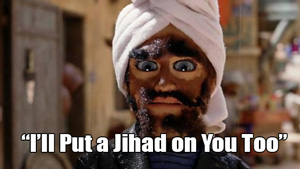
Part of my reason for pursuing philosophy has been to work through my own issues with the war, my actions, the world I thought I knew as well as my own identity and moral standing within it. This present exercise in self reflection is an attempt to allow my enemies’ eyes to be my own; an attempt at healing using the very word that causes the pain, to establish common ground with an enemy that I no longer want to hate.
Killing I am fine with. Hate I am not fine with. Perhaps you will read this and feel the same, and appreciate my attempt for what it is; or perhaps not and it will just piss you off, and that’s okay too.
Jihad
Jihad nearly broke me over the course of two life stages. The first was that the worst and best experiences in my life happened when I directly faced Jihad in open combat. The second stage was when I returned to my country and there was no more Jihad.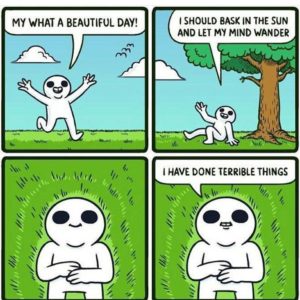
Jihad has many meanings as all are aware of by now, but I mean it in the most general sense of the word itself rather than its more specific applications, which is that of “strive” or “struggle” for the will of Allah.4)Michael Bonner, Jihad in Islamic History: Doctrine and Practice (New Jersey: Princeton University Press, 2006), 2. Although the word translates to this literally, it assumes a transcendent religious context, and this is why it cannot be captured in merely a single seemingly equivalent English word.
Nuances are important, and “struggle” tends to have more of an immediate sense, as though you were involved in a battle at the bottom of a hill. “Strive” has a more sweeping overtone in which one moves beyond trials and tribulations, as though one were fighting through the horde to get to the top of the mountain, and so has a more appropriate connotation for our purposes.
We will use a more western concept of transcendence, which may or may not be strictly religious in nature, in place of their conception of Allah. Jihad is always “striving” for the real, for existence, for the perceived transcendent Good. Except in this world, striving takes on a go-for-broke quality, because there are no second chances.5)There actually is some precedent for this more Platonic idea of the “Good” within Muslim interpretation itself. See for instance the extant works of the famous Medieval Muslim philosopher Al-Farabi, who places Jihad within an explicitly Neoplatonic political framework in Alfarabi, The Political Writings: Selected Aphorisms and Other Texts, trans. Charles Butterworth (London: Cornell University Press, 2001).
For a brief period I lived in a land where “striving” was quite literally a reality of life. Some scholars have pointed out that the reason Islam spread so easily across the desert was that the desert Bedouin mentality was a sparse, fatalistic field that was ripe for planting.6)See for instance William Harmon Norton, “The Influence of the Desert on Early Islam,” The Journal of Religion 4, no 4 (Chicago: University of Chicago Press, 1924), 383-396, and Donald Powell Cole, Nomads of the Nomads: The Āl Murrah Bedouin of the Empty Quarter (University of Michigan: Aldine Publishing Company, 1975), 129, and Ahmed K. A. Al-Mansoori, The Distinctive Arab Heritage: A Study of Society, Culture and Sport in the United Arab Emirates (Emirates Heritage Club, 2004), 128. It is a world where your first born son, the joy of your life and expression of your manhood, could get bitten by a snake and within a few seconds needed you to chop his arm off to save him. Beauty and pain, in an endless circle; the land of extremes.
There is no gradated color chart in the landscape; there is either green, or a dusty talcum textured brown. The contrasts emphasize this two-fold, continual struggle in a way that no other environment ever could. Life and death, beauty and ugliness, good and evil. The desert is Jihad, the war in it is Jihad, and the life is one of Jihad with existence itself.
In fighting against Jihadists, ironically, I lost my own private Jihad by losing my sense of who I was. I compromised myself for the sake of war, and it took place in the smallest of acts rather than the largest. The one that sticks with me most is the seemingly trivial: I once denied a hot Iraqi man a drink of water simply because he was Iraqi.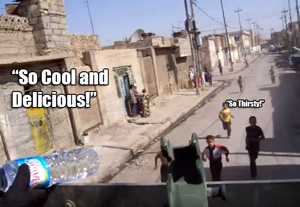
It is not the large, but the smallest actions that define who you are, and this is because the small day to day actions indicate the hardened habits of your character. That is not me. That will never be me. And yet it was.
Regarding the second way, I came home to a land that has every variation of every product imaginable, and any number of means to get them. I stumbled off the plane and entered a world where skinny jeans, lattes, politics, and social “causes” were the driving forces of the day; and religion, family, traditions, and the wars were not. There were no extremes, and it was unclear what was worth believing or fighting for. There was no Jihad, and I felt my soul dying, to the point that I missed the men who cared enough to try to kill me.
Japan
A few years ago I was asked to give a Best Man speech at my friend’s wedding, and he was getting married to a Japanese lady. Of course, I always try to be super deep at everything, so I did a little cultural research on an artwork style known as Kintsukuroi (or Kintsugi) in preparation for my speech. This fascination didn’t end, and in its own way I have come to see the desert as the epitome of both Jihad, as well as the Wabi Sabi philosophy behind Kintsukuroi.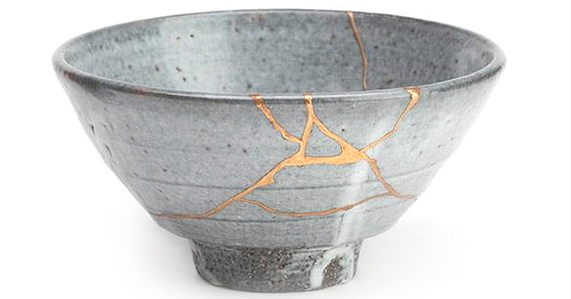
In Kintsukuroi, when a pot, plate, bowl, or other such piece of kitchenware is broken, cracked, or chipped through wear and tear it is not discarded. Instead, it is rejoined together with a lacquer that is mixed with powdered gold called Urushi. The result is a beautiful work of art, that is in fact more than it was before as a result of, and not in spite of its brokenness.
In the authentic form, the lacquer itself is actually poisonous and should not be touched during the process.7)Kurato Osamura and Tokio Nakada, “Widespread Contact Dermatitis Caused by Urushiol in Kintsugi.” Contact Dermatitis 65, no. 6 (November 12, 2011): 361-362, accessed August 8, 2017, DOI: 10.1111/j.1600-0536.2011.01972.x. Naturally, this led to a poignant Best Man speech about how even poisonous and broken people like my friend and soon to be wife could manage to come together as something beautiful, but some of the particulars about this artwork have special significance for combat veterans as well.
Kintsukuroi is the philosophical opposite of Jihad, with its only immediately obvious similarity being that it is utterly alien to the western mind. Jihad is focused on transcendent struggle, but Kintsukuroi is rooted in a Wabi Sabi aesthetic that emphasizes the stark, fleeting impermanence of human life. The lotus flower comes into existence out of nothingness, is perfect in its imperfection simply because it exists in contrast to nothingness, and in the blink of an eye it withers away into the abyss.
Are you depressed yet? The melancholy aspect of beauty is a core part of it. Life is precious, short, and nihilistic; best experienced existentially without attachment rather than explained in words. If Jihad is striving upstream in a river for a purpose, Wabi Sabi is more like sitting on a rock and noting the fleeting, random ripples of the water as it passes by.
To appropriate yet another cultural concept, if Jihad is the process of our struggle for the transcendent, then Kintsukuroi is the state, an eternal snapshot of time represented as art.8)Leonard Koren, Wabi-Sabi for Artists, Designers, Poets & Philosophers (Berkeley: Stone Bridge Press, 1994), 32. Now this is where I part ways from the eastern background, and fuse the concepts of Kintsukuroi and Jihad together. As human beings that exist in time, we can only be that work of art in our own lives if we continue to fight, continue to struggle, and refuse to give in to brokenness as our end state.
Further, we must not allow society to view us as broken. One of the striking things about the Wabi Sabi philosophy, and Kintsukuroi in particular, is that it is a sharp retort to American materialism. Our country likes new, bright faces to buy new, shiny things in our consumer focused economy. The broken bowl is immediately thrown away and replaced with a smooth new one.9)Robyn Griggs Lawrence, Simply Imperfect : Revisiting the Wabi-Sabi House (Gabriola Island: New Society Publishers, 2011), 144-152.
We are not smooth men. We have scars, we have rough senses of humor and our manner is unpolished. We are living reminders of a history and a reality on the other side of the wall where the wild things are, and they need to throw us away and replace us with new Tupperware so that their world can keep chugging along. A life of service is ignored, the cost of our unseemly sacrifice is hidden behind the curtain. A man with an American flag and no legs in a wheelchair isn’t a good look in the local Starbucks.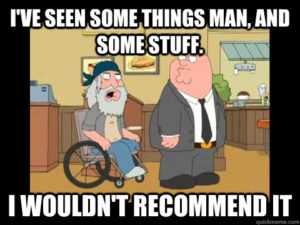
This is their view, but the men of war need to step forward from behind the curtain, and for more than just ourselves. A society that places no value upon those that are worn through experience will not care for the elderly. A society that places no deeper value upon resources, whether human or material, will merely consume and ultimately waste. A society that does not see the cost of Jihad will commit atrocities that make those of the 20th century look like a trial run.
The Beautifully Broken
Have you ever noticed how poor people are kind of weird? I have. I grew up poor, and I noticed a distinct difference that went beyond class and was difficult to put into words. It’s the same difference I saw between the contemporary concept of the soldier or special forces member as “the quiet professional,” and my own quite contrary experiences with the older veterans from Vietnam.
They were loud, boisterous, alpha male types that were often quite happy to tell you all about killing Charlie. This is not at all to typify them, but it is to say that people with certain sets of experiences do not fit the nice, tidy mold that society likes to place on them to make them less scary. These experiences tend to breed a certain “outsiderness” that the more vanilla among us may see as a bit “off.”
Poor people tend to have lived hard lives. They have seen abuse, violence, suffering, hunger, and scorn. They get too close, talk too loud, and are way too honest. My dad was both: a combat veteran and poor in material wealth, and so it was easy to see the parallels between the two. My dad always was seen as lovable, but off kilter and at times too intense. As a kid this used to bother me, but now I love him more than ever precisely because of this.
I have seen people look down on him and I believe he is a great man. He is weird but he is my people, and his weirdness thank God was passed on to me. I don’t want him to be “one of them.” I want him to stand apart, show me his scars, be the beacon of my life, to provide me with a sense of place and past and help guide me to the future.
Normal people, whatever that means, shine a bit less brightly in our memories because of their decision to minimize wear and tear and live within the current. These are also the people that never make it out of Plato’s Cave. If you might indulge my Catholic sensibilities for a moment, even Jesus in the Gospels had to allow himself to be broken before rising to save the world, and I am not even a better man than my postman Greg, let alone than Jesus. So who am I to change the blueprint?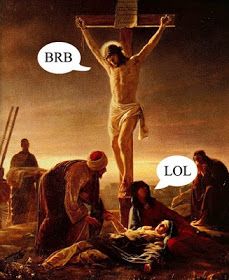
The biggest mistake combat veterans, women that have been violated, children that have been beaten, parents that have lost a little one, and old men that have gone hungry make, is they doubt who they are. We let our current society try to tell us that we need to go back to normal, and yet brokenness is not something to come back from, at least not in the sense that they mean.
Poverty, war, and suffering are as old as humanity itself, and societies that escape it only do so momentarily, and never completely. My favorite movie, No Country For Old Men, put it rather succinctly when the old man tells Sheriff Bell that “You can’t escape what’s coming.” To think otherwise is vanity.
Brokenness is the default. Entropy is built into the fabric of existence itself. Jihad is our fight against the brokenness, and against the bowl to become something greater. It is a recognition that reality consists of only two initial and end states, with an inevitable process of decline from one to the other. Jihad is the fight to rise back, to continue forward and back up the hill. If existence follows entropy, Jihad is life and regeneration.
If we allow society to insulate themselves from us, to believe that the smooth bowl is all there is, then when that smooth bowl breaks they break with it and that’s that. And don’t kid yourself, people can break quickly. A man that dreams only of playing the piano can have his hand destroyed in a car crash, lose the will to live and pop himself with a pistol on the living room couch. Whatever your weakness is, you had better believe that life will find it and stab the opening.
My Proposal
Jihad is the human experience, and just like all things in human experience, too much will break you but too little will bleach the color palette of life into dull shades of gray. Too much war and struggle will lead to a broken bowl, but no knowledge of hardship at all will result in a purely functional bowl that can never be a true work of art.
Functionality will die, but art is eternal. Start viewing yourself as a new being, because let’s face it, you are. You have killed, you have cried, you have laughed, you have loved, you have lost, you have starved and you have feasted, you have danced and you have fallen. And you’re still here.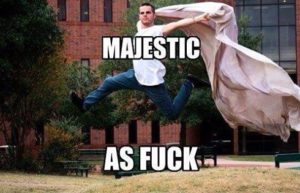
Now someone may point out, and this is worth addressing, that I speak of not returning the bowl back to the way it was before, and yet I am doing just that with the golden lacquer, like a prettier version of super glue. Wouldn’t this mean that I am basically making the analogy that a combat veteran, for instance, should just return back to society and his former self (the bowl) with his new experiences (the lacquer)?
The answer to this may seem subtle at first but it is fundamentally different, and it is in stark contrast to our atomistic, reductionist way of viewing the world. This is an older view of wholeness dating back to Aristotle at the very least and extending forward to the present day in complexity theory. In this view we judge the parts in light of the whole, rather than see the whole as the sum of its parts.
The gold and the bowl pieces are only pieces of art (parts) because the unifying intention of the artist (whole) makes them so. If I put the bowl parts and the gold together in the form of the bowl, but with an eye toward making Kintsukuroi (whole), even if the parts break apart they are broken pieces of Kintsukuroi. They do not revert back to merely gold and broken bowl shards.
The reason why understanding this analogical nuance is so important is that you are not simply someone who has killed people; you are a warrior. You are not merely someone who was almost killed; you are a survivor. You are not the “you” that you were before except “now some shit happened”; you are an entirely new person. You are not the bowl with some gold tacked on, you are the Kintsukuroi, and there is no going back.
If you kill yourself now, as many veterans have and continue to do, then you are destroying a masterpiece of the human experience.
If combat veterans can view this new self as the thing of beauty that it is, and stop trying to achieve the impossible by going back to what a sterile society deems as proper, to a “you” that no longer exists and never could, I truly believe rates of supposed PTSD will plummet.
Many of us are confused. We are trying so hard to be good husbands, good fathers, to be normal at parties or refuse to acknowledge our difficulties at school, and we mistakenly believe that our failure to do so according to the old standards are a shameful deficiency that must be hidden. This isn’t post traumatic stress, this is a fundamental identity crisis, and it quite simply doesn’t have to exist.
I urge all of you that have been crushed by your own experiences, to realize the unique position that you are in. You have seen beyond the safety of the border wall that protects society from the wild lands beyond. You will forever straddle those two worlds of hope and despair, order and chaos, joy and tragedy. Combat veterans, you now embody the desert, a land of struggle and fleeting beauty, a land of extremes; of Jihad and Wabi Sabi, and you understand this world in a way that few can. Your experiences are your golden crown, and instead of forever remaining in the wild lands, bring a bit of the wild back to the mundane.
After all, everybody loves chai.
References
| ↑1 | Daryl J. Eigen, “Dignity for the Enemy: A Practice for Reintegrating Combat Veterans Based on Ancient Wisdom,” Journal of Humanistic Psychology 57, no. 2 (September 14, 2015): 152-169, accessed August 7, 2017, DOI: 10.1177/0022167815604467. |
|---|---|
| ↑2 | Peter Jeffery, “The Earliest Christian Chant Repertory Recovered: The Georgian Witnesses to Jerusalem Chant,” Journal of the American Musicological Society 47, no. 1 (Spring, 1994): 1-38, accessed August 7, 2017, DOI: 10.2307/3128835. |
| ↑3 | Ali ibn Tahir al-Sulami, Kitab al-Jihad, in Emmanuel Sivan, “La Genèse de la Contre-Croisade: un Traité Damasquin de Dévut de XIIe Siècle, Journal Asiatique 254 (Paris: Société Asiatique, 1966), 207 (Arabic text, 206–14; French trans., 214–22). |
| ↑4 | Michael Bonner, Jihad in Islamic History: Doctrine and Practice (New Jersey: Princeton University Press, 2006), 2. |
| ↑5 | There actually is some precedent for this more Platonic idea of the “Good” within Muslim interpretation itself. See for instance the extant works of the famous Medieval Muslim philosopher Al-Farabi, who places Jihad within an explicitly Neoplatonic political framework in Alfarabi, The Political Writings: Selected Aphorisms and Other Texts, trans. Charles Butterworth (London: Cornell University Press, 2001). |
| ↑6 | See for instance William Harmon Norton, “The Influence of the Desert on Early Islam,” The Journal of Religion 4, no 4 (Chicago: University of Chicago Press, 1924), 383-396, and Donald Powell Cole, Nomads of the Nomads: The Āl Murrah Bedouin of the Empty Quarter (University of Michigan: Aldine Publishing Company, 1975), 129, and Ahmed K. A. Al-Mansoori, The Distinctive Arab Heritage: A Study of Society, Culture and Sport in the United Arab Emirates (Emirates Heritage Club, 2004), 128. |
| ↑7 | Kurato Osamura and Tokio Nakada, “Widespread Contact Dermatitis Caused by Urushiol in Kintsugi.” Contact Dermatitis 65, no. 6 (November 12, 2011): 361-362, accessed August 8, 2017, DOI: 10.1111/j.1600-0536.2011.01972.x. |
| ↑8 | Leonard Koren, Wabi-Sabi for Artists, Designers, Poets & Philosophers (Berkeley: Stone Bridge Press, 1994), 32. |
| ↑9 | Robyn Griggs Lawrence, Simply Imperfect : Revisiting the Wabi-Sabi House (Gabriola Island: New Society Publishers, 2011), 144-152. |


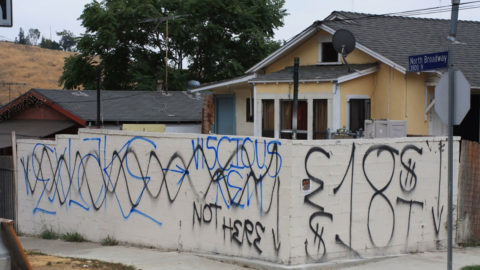
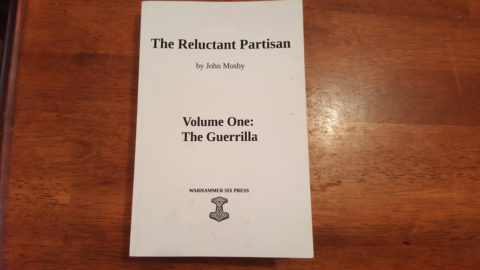
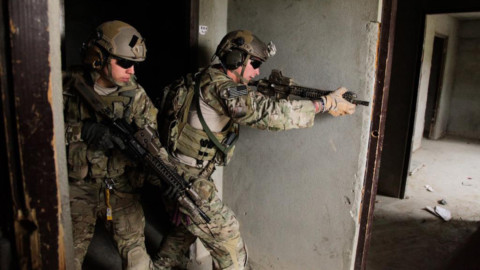
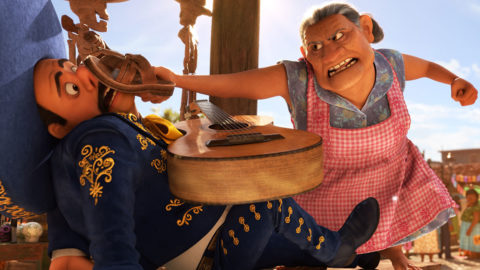
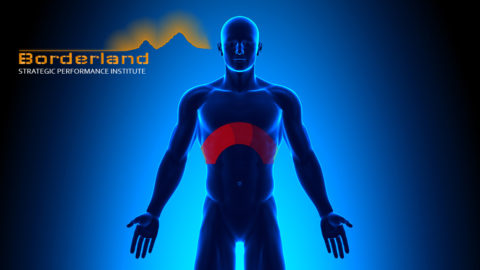
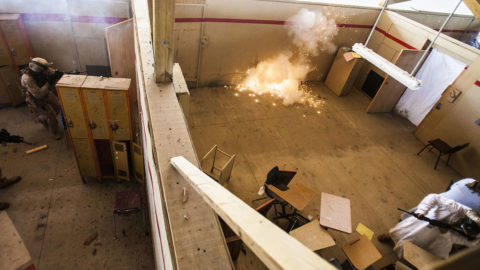
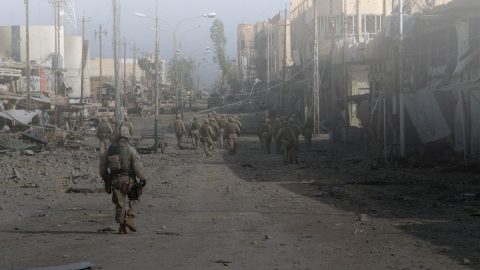
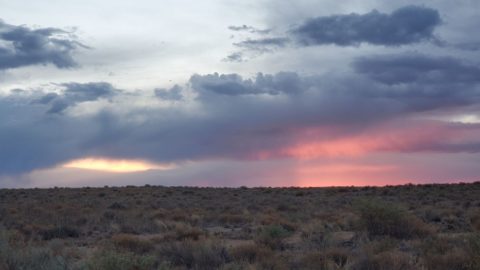
 Rob Brotzman
Rob Brotzman  Nathan Wagar
Nathan Wagar